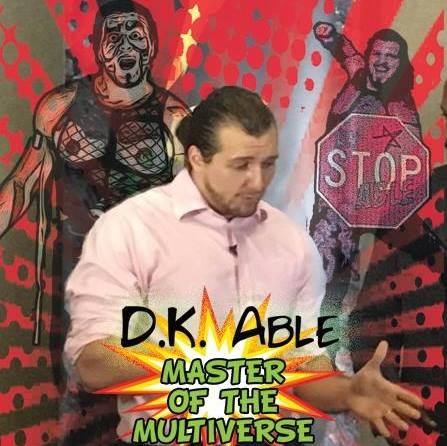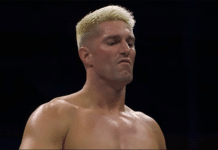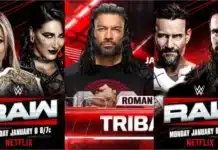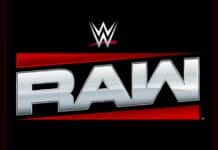
It’s 1997, the boom of the professional wrestling industry is just beginning to surge with a record-setting number of viewers tuning into sports entertainment every Monday night. Recognizable sports figures like Dennis Rodman, who infamously skipped practice to attend a Nitro taping, Kevin Greene, and Mike Tyson were all involved in the fandom of the grappling arts.
That wave of wrestling momentum brought along with it more exposure for the sport as a whole and thus more of a demand for a product that has remained a fixture of entertainment in some form of fashion since the early days of television in the 1950s, which saw the iconic Gorgeous George Wager became as famous as any athlete in the country at the time.
In the late-90s, when society as a whole began to evolve with a more edgy nature toward music and entertainment, pro wrestling naturally followed suit to maximize its draw to the audience. In an era when Marylin Manson’s album went platinum, Jerry Springer had pay-per-view specials, and Howard Stern was heard by nearly 20 million listeners, the culture in America was ready to push the envelope, and so did its professional wrestling.
In a true example of capitalism, as the demand for sports entertainment increased so did the outlets that offered it. Long before Paul Heyman was the advocate for a former UFC heavyweight champion, the mad scientist of the genre was the leader of a revolutionary concept that changed the face of the business, Extreme Championship Wrestling, a renegade group based in South Philadelphia that was ahead of the curve for where society was trending at that point. With the demand for more over-the-top action being seen in the national groups, the wild and violent nature of ECW began to expand on its following, as more fans stumbled upon the promotion by mere accident when channel surfacing.
As history showed, it was actually the national platform that doomed the hardcore organization because it collapsed under the pressure of the financial demands of a national TV network. However, before that disastrous run on TNN, the organic nature of ECW flourished with its late-night syndicated program that got away with more violence because of its time slot and became a way for them to market VHS sales of events, an aspect that was critical for the promotion’s survival. Depending on the location, the Hardcore TV show aired at various times, often paired with secondary WWF programming, which was produced to maximize the amount of content that could be pushed to the viewing audience.
In Pittsburgh, a city known as much for its wrestling as the steel it produced, the late-night block of pro wrestling featured ECW, Shotgun Saturday Night, and an unlikely choice, a local group that had established ties in the area. The Pro Wrestling Express was co-founded in 1994 by the late local legend, Sean “Shocker” Evans, who went on to train at WCW’s Power Plant in Atlanta and appeared in various WWE TV matches before he passed away from cancer in 2007. Evans, kind and generous to everyone that knew him, saw an opportunity to bring an independent group to the western Pennsylvania area, both for his peers to have a place to learn their craft and for the dedicated fans to enjoy. Evans approached Jim Miller, who ran a candy store at a local mall and inquired about the possibility of running events there. Miller, a longtime fan, but admittedly naive to the wrestling business at the time, initially hesitated, but eventually agreed, getting his promoter’s license through the Pennsylvania State Athletic Commission.
Miller, who had a background in design and construction, trusted the in-ring expertise to Evans, while he worked feverishly behind the scenes to put the pieces in place for an eventual expansion. Just a few years after its launch, PWX was wildly popular on the local scene, garnering hundreds of fans to the now-demolished Eastland Mall. The local crew had such a buzz behind them that the concept of a television show was formed and it landed on a UPN affiliate alongside the previously mentioned national groups.
“There was a point in time when that show was huge, especially for us local fans seeing our wrestlers the same night as ECW on TV,” said Joe Folino, a longtime Pittsburgh fan.
At a time when the internet was not a household item and streaming nearly any promotion wasn’t possible, the television exposure was a major positive for PWX. In the total of its 25-year history, PWX ranks among the longest-running independent groups in North America. Stars like T. Rantula, Dennis Gregory, Brandon K, Quinn Magnum, Paul Atlas, Bubba The Bulldog, and many others etched their names into the Pittsburgh sports history books through their efforts in a PWX ring.
However, as is the scenario for any promotion throughout the annals of the sport, there are ups and downs. For PWX, they’ve seen their share of disappointments, but managed to survive through it. From the cancellation of its original television show, the disintegration of the structure of venues, and the general challenges of the wrestling business, Jim Miller remained a sturdy figurehead of the organization. The company consistently ran events throughout its two and a half decade history. Sometimes for a few hundred fans and other times for a few dozen, but the passion to entertain the paying audience remained.
Based in McKeesport, PA, a city known for its high crime rate and violence, PWX looks to stand as a shining example of positivity to give the families of the area a safe place to enjoy entertainment for the night. Miller, who recently launched his own non-profit group, SAVE to help economically disadvantaged kids in the area, has made it his mission to help clean up the city, including the dilapidated abandon church near the wrestling venue, which is scheduled to be demolished soon.
After it reached its 25-year milestone, the organization was at a crossroads, as philosophical differences behind the scenes led to the departure of key fixtures of the company. But, the theory of Pro Wrestling Express was always to provide a platform for the future and an opportunity for those that want to snatch the brass ring.
Danny Able, an 8-year pro that was originally a student at the PWX school, stepped up to take the reigns when the promotion went on a hiatus to restructure itself. Considering himself a jack of all trades, Able dipped his toe into wrestling, production work, and general entertainment in his numerous ventures both inside and outside of the squared circle.
“I think the hiatus was unavoidable. It was the result of longtime differences between the former management and the owner. The new PWX will be a focus on young, upcoming talent and making each show into a unique experience unlike the rest of indy wrestling. Personally, it’s a chance to prove myself. I’ve felt for a long time that as a technical wrestler and a sports entertainer, I’m one of the best around,” Danny Able explained.
An eccentric character with a unique out-of-the-box approach to wrestling, Able blends elements from traditional mat techniques with comic book-inspired drama to create a presentation not seen anywhere else. Able will have to wear many hats in his new role for PWX’s April 18th return, but he sees himself as more than ready for this opportunity.
“I am the new head trainer and I will be hosting each show. Behind the scenes, I am the creative director and will remain an active member on the roster. I came into the position, basically because when the company went on hiatus, I had nowhere else to perform,” Able said.
With an approach to rebuild from the ground level, Able remains humbled and focused on the chance he has to use this platform to express himself, taking a brand that many in the Pittsburgh scene had forgotten about and bring it back to the prominence that it once had.
“I don’t have many future plans in wrestling beyond what’s in front of me right now, but I am excited to be working on the creative and management side of the business,” he explained.
If PWX returns to the level it once was remains to be seen and will be a work in progress, but with new faces scheduled to perform and Danny Able as it’s creative organizer, the will undoubtedly be an intriguing chapter in the company’s extensive history.
For more information about Danny Able, you can go to https://www.facebook.com/AbleMeNet







